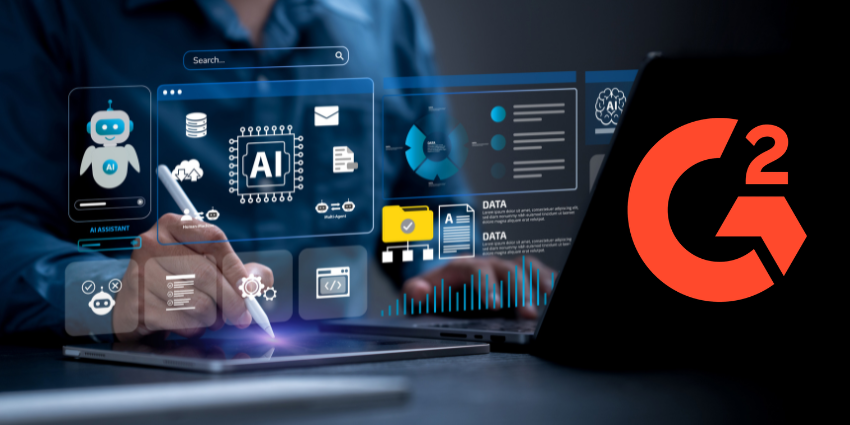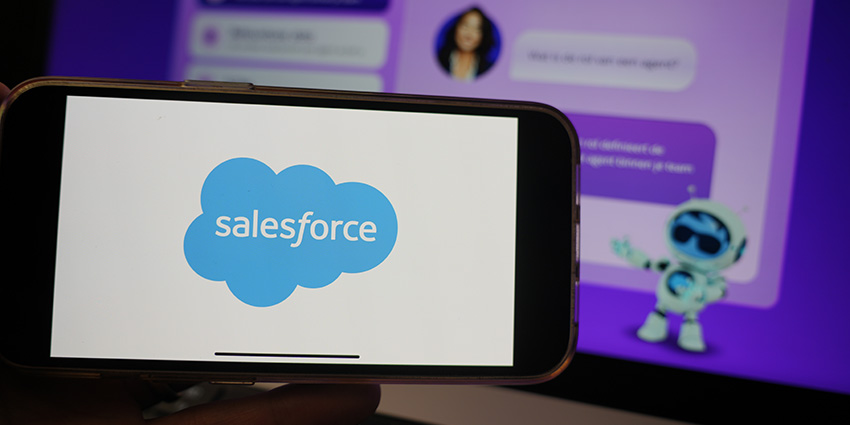Microsoft Copilot for Service represents one of the latest solutions in Microsoft’s AI-infused toolkit for customer-facing teams. Introduced at this year’s Microsoft Ignite event, Copilot for Service accompanies upgrades to the Microsoft Copilot for Dynamics 365 and Copilot for Sales.
According to Microsoft, its ever-evolving range of generative AI “Copilots” are transforming the workplace. These AI tools empower teams to unlock insights from data, automate repetitive tasks, and streamline processes.
More than 130,000 organizations have already leveraged the capabilities of Copilot for Dynamics 365 in the contact center and sales environments. Microsoft even found that 70% of these users believe the AI makes their team more productive, and 68% feel it improves the quality of their work.
Now, Copilot for Service promises to bring even more opportunities and benefits to companies embracing the future of the “AI contact center.” Here’s everything you need to know.
What is Microsoft Copilot for Service?
Microsoft Copilot for Service is a new generative AI solution designed by Microsoft to serve and support customer service teams. It accompanies Microsoft’s “Copilot for Sales” – the next generation of the Microsoft Sales Copilot, alongside enhanced capabilities for Copilot for Dynamics 365.
This isn’t Microsoft’s first time focusing on the contact center and opportunities for generative AI in CX. In the last year, Microsoft has introduced a host of Gen AI features for Dynamics 365 and intelligent tools for empowering and supporting sales teams.
Microsoft Copilot for Service builds on this roadmap, focusing on the specific needs of service agents. In a recent survey, the tech giant found three out of four customer service agents are less engaged and motivated by their work than they once were.
Microsoft says they’re struggling with more demanding schedules, less focus time, and issues delivering exceptional service. However, these agents believe AI can positively impact their performance and provide the unique insights they need to thrive.
Copilot for Service addresses the needs of today’s agents. It leverages Copilot for Microsoft 365 to boost agent experiences in tools like Outlook and Teams. It gives professionals a virtual assistant to deliver guided answers and resources throughout customer conversations.
Moreover, Microsoft Copilot for Service can integrate with existing CRM and contact center services and adapt to specific business needs. Companies can use files, knowledgebase articles, and data sources to train their solution. You can integrate the solution with your tools using more than 1,100 pre-built, native connectors.
The Key Features of Microsoft Copilot for Service
Microsoft Copilot for Service is an adapted version of Microsoft’s “Copilot” generative AI tool. It features the same conversational interface and ease of use of the Copilot experience on other tools, from Teams to Microsoft 365 apps. The main difference is that this solution is tailored to help service agents improve efficiency, delight customers, and increase brand loyalty.
Microsoft says its customers have already begun to discover the benefits of AI for customer service. The company’s customer service and support team has used Copilot capabilities in Microsoft Dynamics 365 for the last six months. With these tools, the agents reduced their average handling times by 12% and felt more capable of addressing cases independently.
Currently, business leaders can use Microsoft Copilot for Service to:
1. Align Customer Service Data
Microsoft Copilot for Service doesn’t just align with existing Microsoft tools like Word and Teams and empowers companies to unify their data from different ecosystems. Companies can connect the technology to their existing Microsoft Teams contact center or another CCaaS solution.
They can use connectors to pull information from SharePoint, public websites, knowledgebase articles, and offline files to personalize the responses of their AI assistant. Copilot for Service includes out-of-the-box integrations with Zendesk, ServiceNow, Salesforce, and Dynamics 365.
2. Support Agents in the Flow of Work
According to Microsoft, Copilot for Service is the ultimate productivity tool for contact center teams. It can accelerate onboarding and case resolution, improve team efficiency, and automate tasks so agents have more time to focus on customers. Users can also access the generative AI solution on their desktop of choice via Teams and other applications.
Copilot for Microsoft 365 is included in the “For Service” offering, providing employees with the same intelligent tools across Outlook, Teams, and other platforms. In each Microsoft app, Copilot can perform different tasks. For instance, it can summarize email threads and draft emails in Outlook. In Teams, the tool can summarize meetings, highlight key discussion points, evaluate sentiment, and align meeting data with CRM and case information.
Plus, all this functionality is easy to access, as users can connect with the Copilot system using natural language without any technical or coding knowledge.
3. Create Custom Solutions
As mentioned above, Microsoft’s flexible ecosystem makes it easy for companies to align Copilot for Service with their contact center and CRM tools. They can infuse the AI assistant with their business data, articles, and resources to ensure personalized responses.
However, there are other ways to customize the Copilot experience, thanks to Microsoft’s new “Studio” solution. Copilot Studio allows companies to adapt existing copilot tools for their unique needs, adding additional topics, automated workflows, and more. Plus, organizations can even use the Studio system to build their own unique generative AI applications.
The Roadmap for Microsoft Copilot for Service
While Microsoft Copilot for Service already promises to be a powerful solution for enhancing contact center AI, the tech giant says it will continue to deliver new features. In the future, Copilot for Service can enrich email summaries, message drafts, and meeting summaries using CRM data.
The tech will allow agents to view and update records directly from Outlook and Teams. Plus, it will automate everyday tasks like wrap-ups, scheduling meetings, following up on tasks, and creating contact profiles.
This will make Microsoft Copilot for Service similar in functionality to the “agent assist” feature in Copilot for Dynamics 365 Customers Service.
Additionally, Microsoft says the future Copilot will be able to make proactive recommendations for developing and enhancing knowledge assets. It will curate information across cases, Teams, chats, and email threads. This will lead to more comprehensive knowledge bases, empowering employees with a 360-degree view of their customers.
Using Microsoft Service Copilot: Availability and Pricing
The Microsoft Copilot for Service solution will be available in “public preview” from the beginning of December 2023. Microsoft says general availability will begin in the first quarter of 2024, and the solution will cost $50 per user per month.
Notably, Dynamics 365 customers can access comparable “agent assist” capabilities with the Dynamics 365 Customer Service Enterprise plan.
Copilot AI features are only available by default to customers using the United States as their geography for data storage and processing.
To enable Copilot for Service, system administrators must configure knowledge management features in their environment. Plus they need to set the correct parameters for their ecosystem. You can find tips on how to do this on the Microsoft website.
Once the proper licenses are set up, business leaders must enable Copilot features in “Agent Experience” profiles on the Customer Service Hub. To do this, visit “Agent Experience Profiles” in the “Workspaces” section of the “Agent Experiences” tab.
Select your profile, and switch on “Copilot” in the Productivity Pane. This will load a “Copilot AI features” page, where you can customize the tool’s functionality.
Administrators can also enable data sharing for Dynamics 365 copilot features via the Power Platform admin center. This will allow Microsoft to capture and review customer data such as natural language inputs, outputs, and related telemetry. However, Microsoft doesn’t use customer data to train its Azure OpenAI Service models.
Looking Forward with Microsoft Copilot for Service
Microsoft Copilot for Service contributes to Microsoft’s growing focus on supporting professionals in the contact center. This comprehensive solution should help businesses boost agent productivity and efficiency, automate repetitive tasks, and facilitate exceptional customer interactions.
The solution accompanies a range of other tools also introduced for service and customer-facing teams. At Ignite this year, Microsoft introduced AI-powered experiences for Microsoft 365 Dynamics Field Service, available in preview in December. This tool will allow frontline workers to rapidly access information on a job site using a conversational interface.
Additionally, Microsoft has also updated its Microsoft Dynamics 365 AI capabilities. The Copilot solution for Dynamics 365 offers a similar experience to Microsoft Copilot for Service. It also provides access to in-depth customer insights to boost a company’s understanding of its customer segments.
Starting in December, users can generate customer profile summaries in Dynamics 365 with Copilot, qualify leads, and more.







